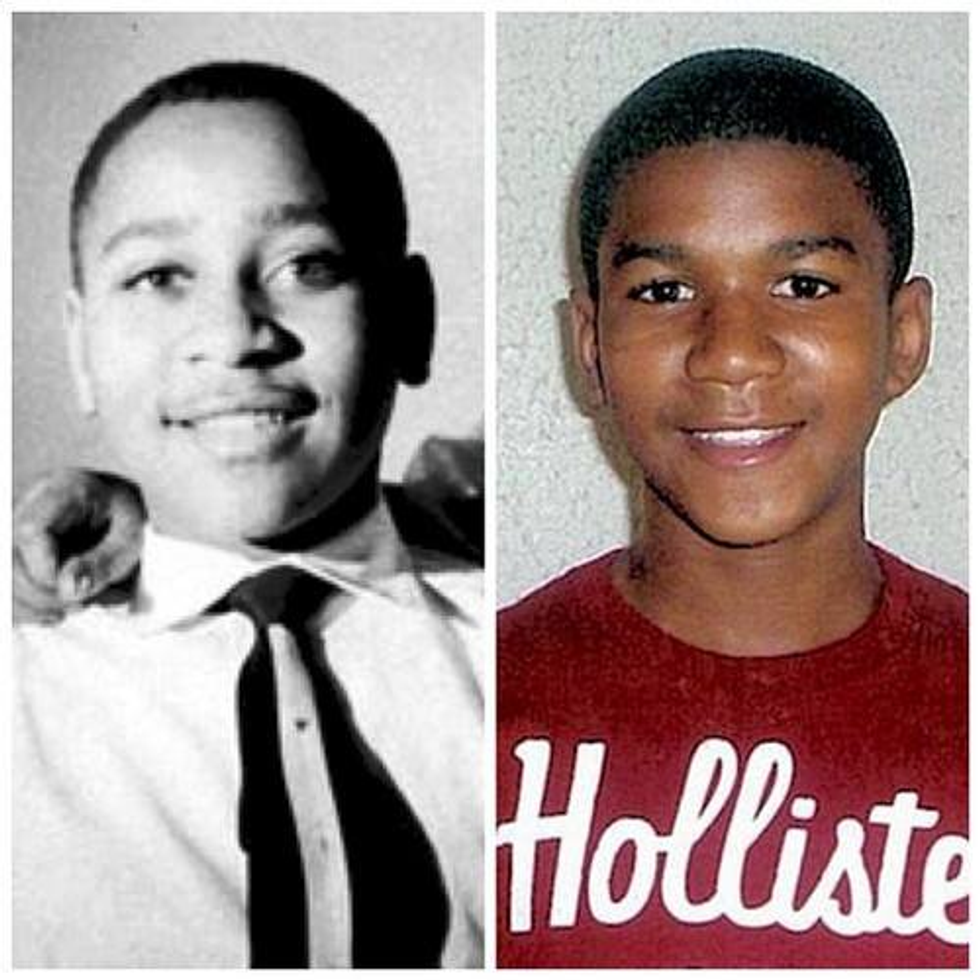I wrote this on what would have been Trayvon Martin's 23rd birthday, February 5, 2018. When I think of Trayvon Martin, I think of Emmett Till. My grandfather, who is still alive, was the same age as Emmett and lived a county away in Mississippi from where he was lynched for "whistling at a white woman" who admitted that she lied last year.
He had to live under the same social order and racial constructs. As he told me years ago, "Emmett Till was the Trayvon Martin of my time, he could have been any black boy in America and didn't receive justice." Trayvon Martin was only a month younger than me and just like Till's murderers bragged about the lynching, George Zimmerman eventually did the same when he retweeted a picture of Martin's dead body in 2015 with a caption that bragged about the shooting.
It really demonstrates how things have changed and how they have not and how the construct of criminality has evolved and still haunts every black man in America and the world. And just like Till sparked the civil rights movement, Martin sparked the Black Lives Matter movement. It demonstrates to me how history does not repeat, it rhymes.
Not many Americans know or realize this, but the 1963 March on Washington where Martin Luther King, Jr. gave his "I Have a Dream" speech was held on August 28, 1963, the anniversary of Till's lynching. Barack Obama became the first African-American presidential nominee of a major party on August 28, 2008, and the date was not a coincidence.
What we consider to be the most positive turning points in our modern racial history, stemmed from the most negative and I believe that is possible with the Black Lives Matter movement and Trump era as well. Just like the civil rights movement forced the passage of civil rights legislation that dismantled Jim Crow segregation, Black Lives Matter needs to begin shifting its focus and operation, as it already has, to voting in every election and mobilizing around criminal justice and gun reform legislation on a local, state, and national level if the movement is to have a long-lasting impact that will be forever felt.
If we want to honor Trayvon Martin and others like him in the same manner as those who came before us, this is what we must do. Criminal justice reform is the civil rights issue of our time and it is not only the right thing to do, it is also on the right side of history.
















